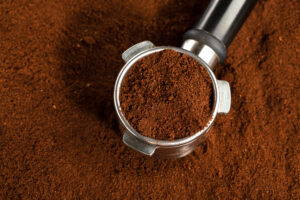The relationship between coffee and cancer is one of the most interesting and most studied effects. However, there is still no clear “good or bad” verdict that can be stated. In fact, in a meta-analysis conducted in 2011, it was found that “coffee consumption may reduce the total cancer incidence”, but “it also has an inverse association with some types of cancers.” Using OneHealth Pro, we can take a closer look at what the literature suggests.
Breast Cancer
OneHealth Pro finds coffee as a determinant that decreases the incidence/risk of breast cancer. Several studies find supporting evidence that breast cancer risk is decreased in women with high coffee consumption, “especially in postmenopausal and European women.” Interestingly, another study finds that “coffee consumption has been associated with a reduction in breast cancer risk among women with a BRCA1 mutation,” the BRCA1 mutation being one of the most well-known and common gene markers for breast cancer. However, many of these studies performed are observational studies, and can only find correlational effects, so their results must be taken with caution.
Bladder Cancer
While drinking coffee may be beneficial for preventing breast cancer, studies show opposite effects for bladder cancer. OneHealth Pro identifies coffee as an “increasing” determinant of bladder cancer, with 19 studies finding that coffee may increase the incidence/risk of bladder cancer. A 2015 meta-analysis concluded that “there was an increased risk between coffee consumption and bladder cancer”, but this may only apply to those who drink excessive amounts of coffee, as a different study found that “showed a significantly increased bladder cancer risk for coffee consumption of more than four cups per day.”




